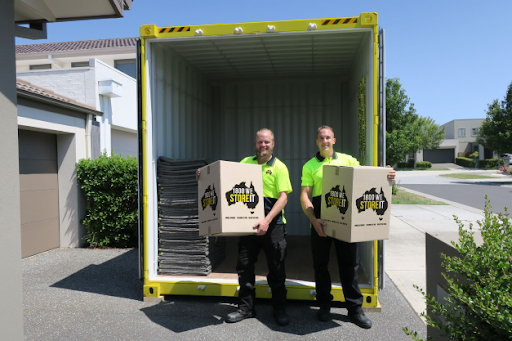The companies holding the largest market share in the Chlorine Manufacturing industry include Olin Corporation, Occidental Petroleum Corporation and Westlake Chemical Corporation.
Why is there a chlorine shortage 2021?
The factors of COVID-19 isolation, an increased demand for backyard pools and the Louisiana fire have combined to create the worst chlorine shortage the country has ever seen. … The only problem is that now, they will have to be patient for both their new pools and the thin supply of chlorine used to clean them.
Is there a chlorine shortage?
The shortage is due to increased demand for pool supplies during the pandemic and a chemical fire at a BioLab facility in Louisiana after Hurricane Laura that knocked out one of the country’s three main chlorine manufacturers.
What public companies make chlorine?
Chlorine Stocks List
| Symbol | Grade | Name |
|---|---|---|
| ICL | B | Israel Chemicals |
| WLK | B | Westlake Chemical Corporation |
| NSC | C | Norfolk Southern Corporation |
| OXY | C | Occidental Petroleum Corporation |
Where is most chlorine manufactured?
Most chlorine is manufactured electrolytically by the diaphragm, membrane, or mercury cell process. … Chlorine Manufacture.
| Chlorine Production | |
|---|---|
| Area | Million Short Tons |
| Globally | 65 |
| United States | 13.8 |
| Canada | 1.1 |
Why is chlorine so expensive now?
Blame two factors for the chlorine shortage, says CNBC. One, unsurprisingly, is COVID-19: Last summer, sales for swimming pools skyrocketed as people all over the planet stayed home during the pandemic, leading to an increased demand for prepared chlorine products.
What is an alternative to chlorine in pools?
There are alternatives to chlorine including bromine, ionizers, and ozonators, though with each you’ll still need to use some chlorine. A fourth alternative is PHMB, which doesn’t require the use of any chlorine. All four have drawbacks, including cost.
Are chlorine prices going up?
With summer around the corner, pool owners may be spending more to enjoy a refreshing respite from the heat. According to experts, there is a chlorine shortage due to a swimming pool boom and a fire at a chemical plant in Louisiana. This shortage will make it more expensive to keep pools clean.
Can I use bleach instead of chlorine in my pool?
Short answer: yes. Longer answer: it depends on the formulation. The label on every bleach bottle should tell you the ratio of sodium hypochlorite (and available chlorine) in the bottle to everything else. A higher percentage is generally better, as you’ll need to use less bleach to treat your pool.
What is causing the pool chlorine shortage?
A fire at a chemical plant and a pandemic-driven boom in the construction of backyard pools are the causes of a nationwide shortage of chlorine tablets, experts say.
Is pool shock the same as chlorine?
1) What is the difference between chlorine and shock? … Shock is chlorine, in a high dose, meant to shock your pool and raise the chlorine level quickly. Chlorine tabs (placed in a chlorinator, floater, or skimmer basket) maintain a chlorine residual in the water. You do need to use both tabs and shock.
Can you swim in a pool without chlorine?
The Bottom Line about Pools and Chlorine As mentioned above, you could probably swim in a pool without chlorine without any major health issues. However, long-term use of a pool lacking chlorinated H2O could make you sick or, at the very least, contribute to rashes and other types of skin irritation.
How do you manufacture chlorine?
Chlorine can be manufactured by the electrolysis of a sodium chloride solution (brine), which is known as the Chloralkali process. The production of chlorine results in the co-products caustic soda (sodium hydroxide, NaOH) and hydrogen gas (H2). These two products, as well as chlorine itself, are highly reactive.
Where does chlorine for pools come from?
Chlorine is produced from ordinary salt, by passing an electric current through a solution of brine (common salt dissolved in water) in a process called electrolysis. Why is chlorine added to swimming pools? Chlorine is added to the water to kill germs.
What is chlorine used for?
Chlorine has a variety of uses. It is used to disinfect water and is part of the sanitation process for sewage and industrial waste. During the production of paper and cloth, chlorine is used as a bleaching agent. It is also used in cleaning products, including household bleach which is chlorine dissolved in water.
What products are manufactured with chlorine?
Large amounts of chlorine are used in many industrial processes, such as in the production of paper products, plastics, dyes, textiles, medicines, antiseptics, insecticides, solvents and paints. Two of the most familiar chlorine compounds are sodium chloride (NaCl) and hydrogen chloride (HCl).
Where can chlorine be found?
Chlorine can be found in abundance in both the Earth’s crust and in ocean water. In the ocean, chlorine is found as part of the compound sodium chloride (NaCl), also known as table salt. In the Earth’s crust, the most common minerals containing chlorine include halite (NaCl), carnallite, and sylvite (KCl).
How much does chlorine cost?
Average cost per pound of powder chlorine is $1.23. Therefore, the cost per pound of AVAILABLE CHLORINE = $1.76/lb.
Why are 3 chlorine tablets so expensive?
The reason why trichlor tablets are so expensive and why they are sold out at many pool supply stores is because of the national trichlor supply shortage. …
Why is chlorine so expensive 2021?
The prices also have been driven up by increased demand, fueled by the coronavirus pandemic. A report from Goldman Sachs released in April 2021 said about 96,000 pools were built last year in the U.S., with an estimated 110,000 expected to be constructed this year.
Can I put bleach in my pool?
The solution to maintaining a clear pool is to use readily available liquid bleach as your chlorine source. … Daily adjustment of bleach to your pool water will result in a relatively constant level of active sanitizing chlorine that will be cheaper and easier to maintain over time.
Can I use baking soda instead of chlorine in my pool?
Most people know that chlorine is an important chemical in keeping pool water safe for swimming. But adding too much chlorine can lower your pool’s pH as well as its total alkalinity. … This handy tool for pools is none other than Arm & Hammer baking soda, although you’ll need pounds of it rather than a pinch.
How can I keep my pool clean without chlorine?
3 Ways to Sanitize Your Pool without the Typical Chlorine Risks
- Salt sanitizers (saltwater pool) In recent years, saltwater sanitizers have become a popular alternative to off-the-shelf chlorine for treating water in swimming pools. …
- Ozone pool purification. …
- Ultraviolet pool sanitizing light.
What is the healthiest pool system?
Mineral Swim is the only system of it’s kind combining Australian made ozone water purification technology with 100% natural Dead Sea minerals to make it the safest, healthiest swimming pool about.
Is there a chlorine shortage in CA?
The chlorine shortage has already shuttered public pools and cancelled swim lessons across the country, including many in sunny Los Angeles. Less than a month after they were cleared to reopen by the Department of Public Health, the majority of city-run pools in L.A. have had to close down for want of the chemical.
Is pool chlorine stronger than bleach?
Chlorine is much stronger than bleach. To get your pools chlorine level to the point it needs to be to keep the pool looking clean and bright; you will need to use more bleach than you will chlorine. Bleach is also going to come in a liquid form only, and chlorine is most commonly sold in tablets.
How do I make my pool water crystal clear?
Here are 3 ways to clear your cloudy swimming pool:
- Use A Pool Clarifier. It’s always a good idea to use some sort of pool water clarifier weekly. …
- Use Pool Floc (Flocculant) …
- Use Your Filter System and Bottom Drain(s) …
- Use Pool Service on Demand.
How much bleach do I put in a 20000 gallon pool?
ADD BLEACH TO YOUR POOL
| Pools Water Volume | Amount Of 6% Bleach Needed To Raise 1 PPM |
|---|---|
| 10,000 Gallons | 21 Ounces |
| 15,000 Gallons | 31 Ounces |
| 20,000 Gallons | 41 Ounces |
| 25,000 Gallons | 52 Ounces |


